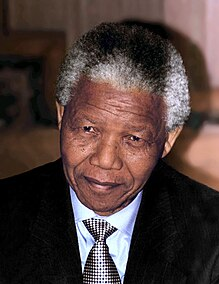Respond to this Friday Faithfuls challenge by writing anything about this phenomenon where people believed that Nelson Mandela died in prison in the 1980s, when he actually lived to be 95 years old and died in 2013, or you could write about another false memory of an event that never happened, or any other psychological effect, or write about whatever else that you think might fit. The Mandela Effect is an example of something called “collective false memory”. Physicists felt it was their duty to assure us that we’re not living in an alternate reality when Trump became president, despite most polls predicting Hillary Clinton was going to win. Memory still looms as a big mystery in science. No scientist is perfectly sure how the brain physically sorts and stores all the information that it receives and how it gets encoded into memories. The brain prioritizes memories that it figures are going to be useful for future decisions, basically remembering what it wants to remember. Our memories are not always precise and although our brain can remember that we forgot something, it can’t remember what it is that we forgot in the first place. Memory is highly malleable, as our memories can change with time, giving rise to conspiracy theories and harmful false beliefs.
In 2010, researcher Fiona Broome coined the term the Mandela Effect when she discovered that many people believed, as she did, that anti-apartheid activist Nelson Mandela died in prison in the 1980s and her research discovered that memories that seem true and clear in your mind but are somewhat or entirely mistaken are quite common. Broome researched the paranormal and that is why some people have speculated that the Mandela effect is an example of alternate realities getting crossed into parallel universes. Researchers cannot fully explain the reason why people experience these false memories, but several concepts about memory explain parts of the effect. One explanation for this is that our brains encode memories in part through expectations of how things are supposed to be. A false or inaccurate perception happens when we see others through a lens distorted by our wishes, needs, and experience. Misperceptions threaten to warp mass opinion and public policy on controversial issues in politics, science, and health. Though limits on cognitive resources and attention play an important role, many of the most destructive misperceptions arise in domains where individuals have weak incentives to hold accurate beliefs and strong directional motivations to endorse beliefs that are consistent with a group identity such as partisanship. Suggestibility has a strong influence on our behavior, so when somebody makes a suggestions or states something that can alter our memory without us realizing it. There are many ways in which our minds create perceptions, weigh decisions, and subconsciously operate and this may introduce errors or distortions into memories of certain experiences. Trump did become the 45th President of the United States, but this does not provide any evidence for multiple universes.

Interesting topic Jim
LikeLiked by 1 person
This was one of my shorter posts and I am glad you liked it, Sadje.
LikeLiked by 1 person
If I have time I’ll write for it.
LikeLiked by 1 person
That sounds wonderful.
LikeLiked by 1 person
Thanks 🙏🏼
LikeLiked by 1 person
[…] Mandela Effect […]
LikeLike
I don’t believe in multiple universes, but I really WANT to believe in them. It would so convenient to put things I don’t want to deal with into “some other universe” so some other “me” would deal with it. Maybe it could even create some version of time travel.
LikeLiked by 1 person
Multiple universes, parallel worlds and alternate realities should bring us infinite possibilities, but things in another universe could end up being worse than what you have here.
LikeLike
[…] Mandela Effect […]
LikeLike
Not sure it this qualifies but it’s where my mind went.
https://tinastewartbrakebill.com/2024/05/17/2876/
LikeLiked by 2 people
Many people believe that Elvis went into hiding and that he is not dead.
LikeLike
Fascinating post–thank you!
LikeLiked by 1 person
Glad you enjoyed it.
LikeLiked by 1 person
I’m sure Elvis is coming back. And I knew Nelson Mandela was still around. But there’s plenty of things I “know” are true that are not. My wife points them out to me all the time.
LikeLiked by 1 person
It is good to have a wife that is capable of pointing out all of your mistakes.
LikeLike
[…] Friday Faithfuls […]
LikeLiked by 1 person
False memories are made from concealed truth – Reena Saxena (wordpress.com)
LikeLiked by 1 person
[…] to this Friday Faithfuls challenge by writing anything about this phenomenon where people believed that Nelson Mandela died […]
LikeLiked by 1 person